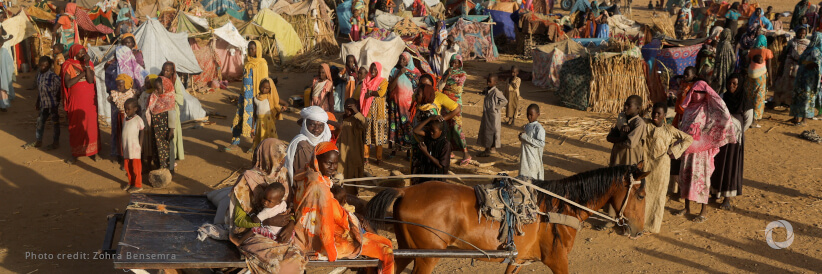As Sudan marks two years since the outbreak of war, the International Rescue Committee (IRC) warns of unprecedented humanitarian disaster and failed diplomacy. With millions displaced and famine spreading, IRC urges the international community to retrain focus on Sudan, releasing key policy recommendations to avert further catastrophe.
Anne Marie Schryer, IRC East Africa Advocacy Coordinator said: “The war is growing more complex and devastating for the people of Sudan. The internationalized conflict now involves a growing array of local, regional and international actors making a ceasefire more difficult to achieve, a regional conflagration more likely, and all the while, increasing the suffering of civilians who have borne the brunt of this brutal war. Enough is enough. More words can no longer capture the catastrophic toll of this devastating conflict on over 30 million lives; the failure of diplomatic actors to respond effectively has allowed Sudan’s crisis to worsen beyond measure. Now is the time for action.”
The barriers to progress are well understood, including disjointed negotiation processes and a lack of international pressure on warring parties and their sponsors to end the fighting and ease barriers to humanitarian aid delivery. As the war enters its third year, UN member states should learn the lessons of the last two years and change the incentives for the warring parties to bring an end to the fighting and ensure the people of Sudan have access to the humanitarian assistance they so urgently require. IRC’s policy paper sets out detailed recommendations on:
- Coordinate diplomatic efforts: Establish one negotiating process that involves the warring parties and their sponsors to agree to a de-escalation of the violence.
- Secure unfettered access to humanitarian aid: Barriers to aid delivery must be dismantled and the presence of the UN expanded across Sudan.
- Prioritize funding for humanitarian aid in Sudan: Immediate and sustained funding, including for local responders, is required to prevent the further spread of famine and address Sudan’s worsening humanitarian emergency.
When the conflict began in 2023, the IRC adapted the programs and scaled up the response to address the increased humanitarian needs. Despite immense operational challenges, the IRC continues to provide support in Blue Nile, Gedaref, Khartoum, South Kordofan, River Nile, and White Nile states. IRC also has a logistics and coordination office in Port Sudan and is exploring opportunities to expand its presence into other states.

